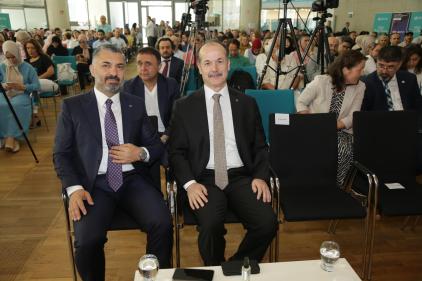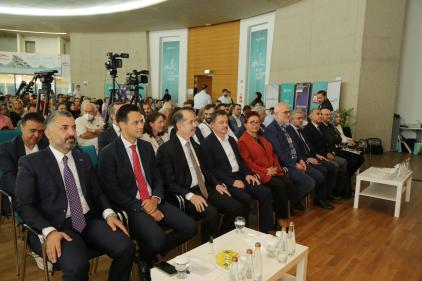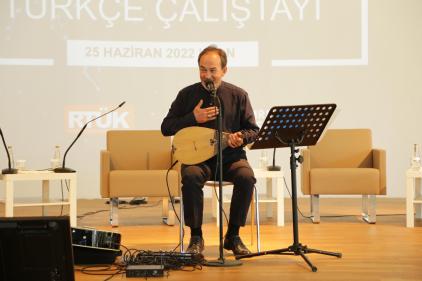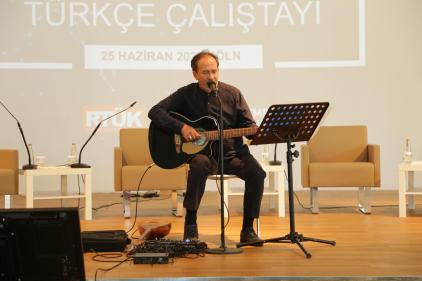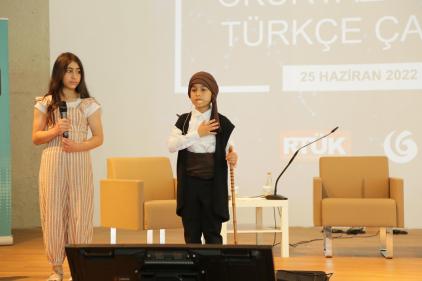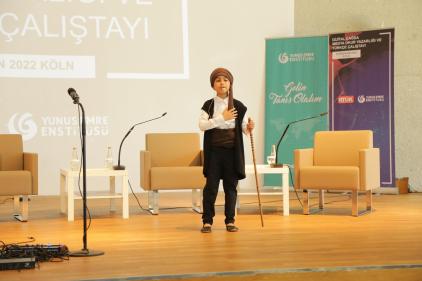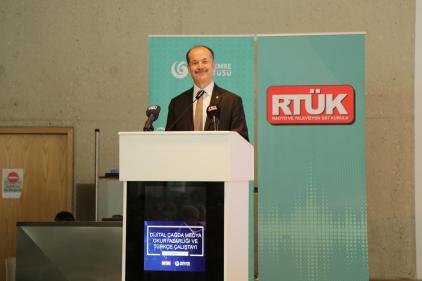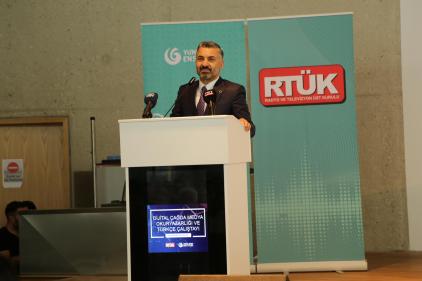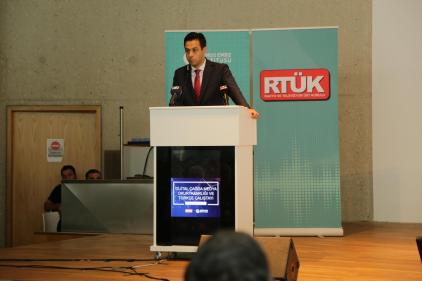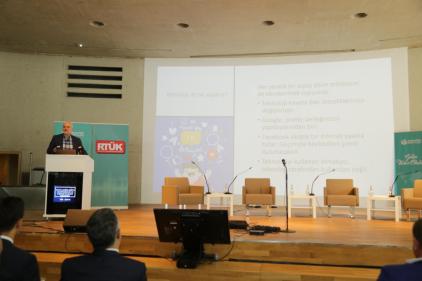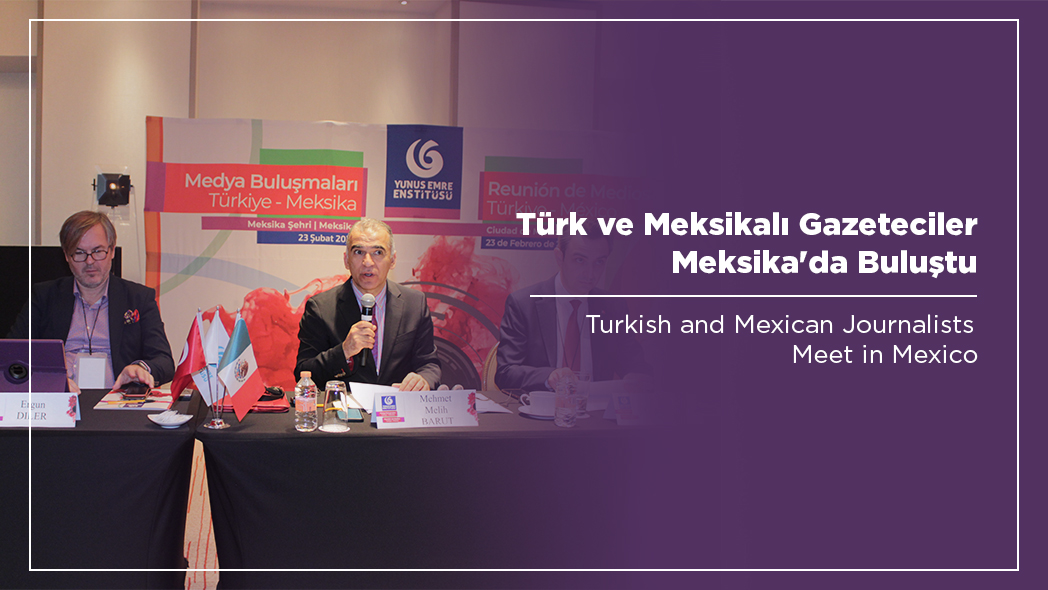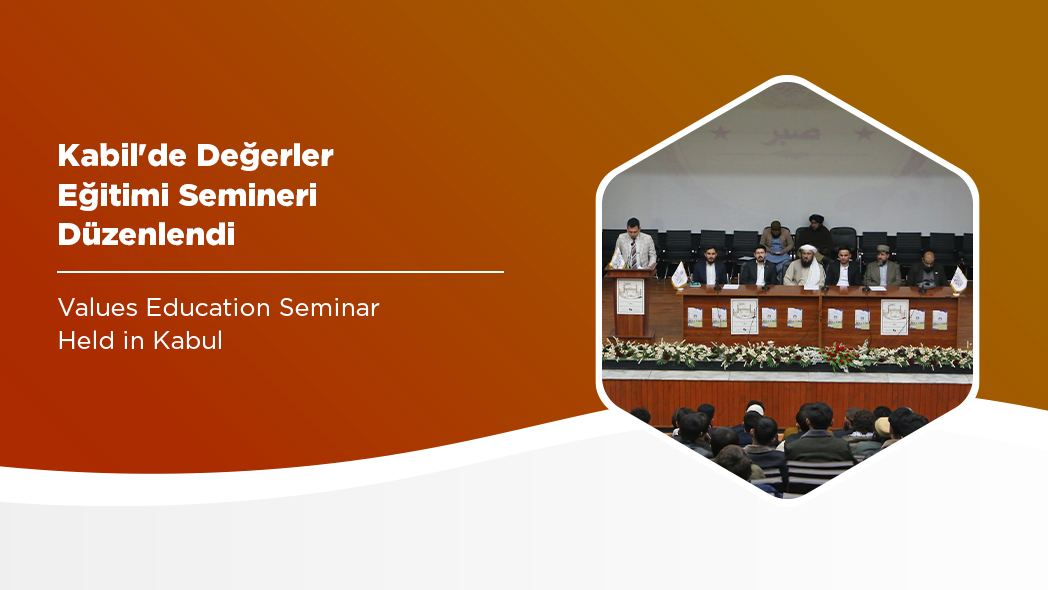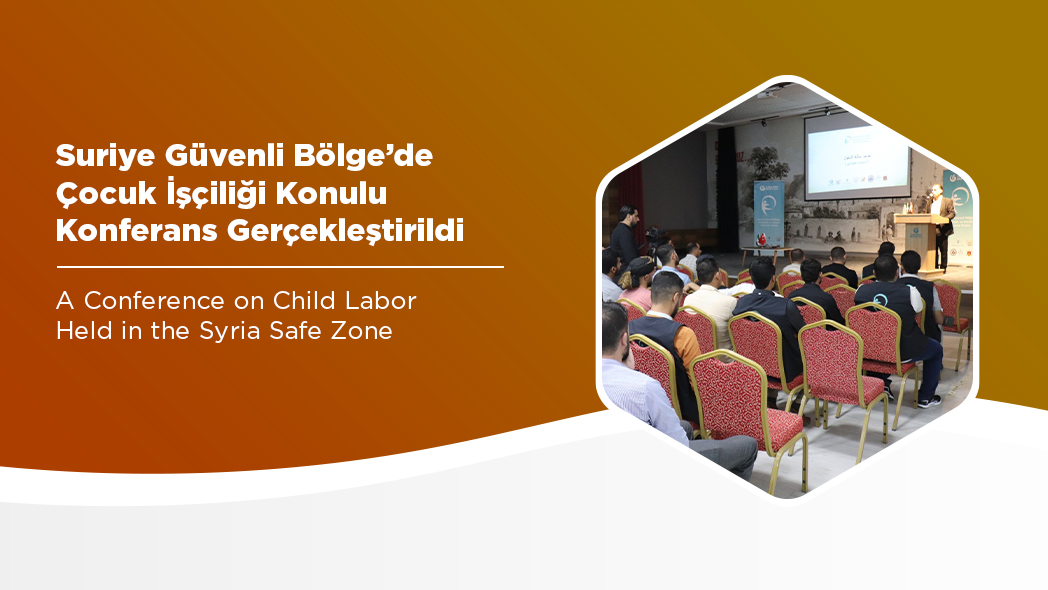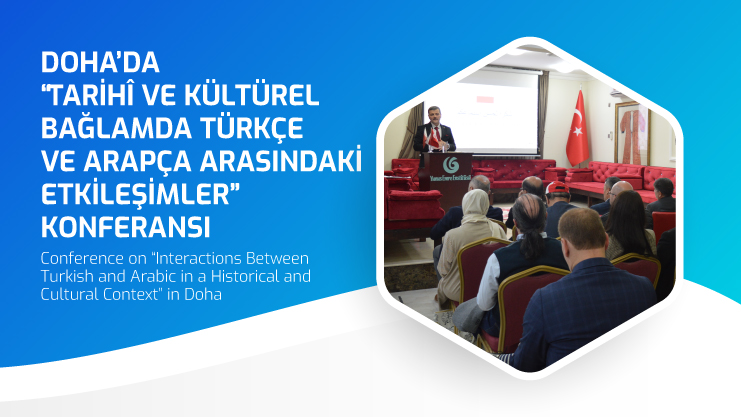“Media Literacy in the Digital Age and Turkish Workshop’’ Held in Cologne
The first session of the "Media Literacy in the Digital Age and Turkish Workshop " was held in Cologne, Germany.
The workshop, which was held for the 7th time on June 25, 2022, in cooperation with the Radio and Television Supreme Council (RTÜK) and the Yunus Emre Institute (YEI), supported by the Ministry of Culture and Tourism, aimed to increase digital awareness and spread the Turkish language.
It was noted that in the workshop held at the Headquarters of the Turkish-Islamic Union of Religious Affairs (DITIB) in Cologne, it was aimed to improve the digital literacy of virtual media users and to teach and disseminate Turkish, the 5th most common language in the world.
At the beginning of the workshop, Nogai Turk dombra artist and musician Arslanbek Sultanbekov gave a mini concert. German students learning Turkish at Yunus Emre Institute also displayed a "Poem Performance ".
EMPHASIS ON LANGUAGE AND CULTURE
In his speech, Yunus Emre Institute President Prof. Şeref Ateş explained the goal they wanted to achieve with these workshops as Yunus Emre Institute and RTÜK, saying, “Every age has a language, the language of this age is the language, digital reading, it has an alphabet, and it is necessary to introduce this alphabet. Each alphabet has content in it. Language and culture are what we call content. Yunus Emre Institute undertakes the language and culture part, and RTÜK undertakes the other technical part. As we learn this language and valuable contents, we will take a step forward in the geographies we are in. In the geographies we are in, the digital age is an age where borders are exceeded. In this age, we will also give our color to communication."
Prof. Ateş continued as follows:
"Every thought is a seed. These external thoughts need to be surrounded by emotions in order to fall into the mind and sprout. Surround yourself with the thoughts you get throughout the day with emotions. This is not enough; it is necessary to pour it into a language pattern for it to grow. Turkish is the best pattern. In this sense, surround the thoughts you approve with emotions and put them in the language pattern. But in order not to turn it into paper and create ideals out of paper, make sure to turn the thoughts you put into this language pattern into behavior.”
RTÜK President Ebubekir Şahin said, "Media literacy is a lesson and science that tells us what our children should watch, what our parents should make them watch, and that enables them to distinguish virtual from fiction and reality. In schools in Turkey, not only media literacy but also digital media literacy lessons will be given. We wanted to explain these in European countries where our citizens live intensely.’’
Turhan Kaya, Consul General of Turkey in Cologne, emphasized the importance of learning Turkish and transferring it to the next generation.
Noting that there are 50 thousand Turkish students only in the Cologne region, Kaya stated that there should be a certain number of demands for Turkish and Turkish culture lessons to be taught in schools and that parents and students have lots of work to increase these lessons in schools.
“LEARN EUROPEAN LANGUAGES”
At the "Media Literacy in the Digital Age and Turkish Workshop " held in Cologne, Germany, while Prof. İlber Ortaylı and Prof. Edibe Sözen were giving a speech, Prof. Kemal Sayar gave a conference on "Staying Happy in the Digital Age".
In the workshop at the headquarters of the Turkish-Islamic Union of Religious Affairs (DİTİB) in Cologne, addressing the Turkish youth living in Europe, Prof. Ortaylı said, "Preserve Turkish and learn other European languages, especially English.
German and German culture have a past. For them, the 19th century, even the period between the two wars, is magnificent. At that time, all sciences were in German, but German is no longer spoken in medicine and engineering."
Addressing the youth, Prof. Ortaylı said:
"Our country expects something from our young people. You broke away from Anatolia, from our homeland. You don't have to go back either; you will just stick with your habit. The most important thing you to recall is to remember that you are a part of Turkey. It’s not about eating doner kebab or yearning boza. You should shout the problems of this country to the world. You are not obliged to be a German intellectual here, do not do this. You are not like the Turks living in the Soviet Union. This is Germany, a lot can be learned and done here; this is an open country. It is important that you are a world person, not someone who has opened up to Germany. To become a world person, you will review the writing system of the computer in front of you. Your language must be English. Today 3.5 million people are not assimilated in any country in Europe; that is not possible."
EMPHASIS ON "COMMUNICATION, CULTURE, AND CIVILIZATION"
Member of the Presidential Social Policy Council and Chair of the Board of the Press Advertising Institution, Prof. Edibe Sözen, gave a speech titled "Communication, Culture, and Civilization".
In her speech, Sözen said, "Culture is a form of thought, point of view, design, imagination, feeling, understanding, and evaluation. A literary work, a novel, a piece of music, an epic, a scientific theory, our customs, architecture, painting, calligraphy, almost every single cultural element of these. So, we have a lot of these. We are the children of a civilization that has dominated the world. Not everyone is blessed with civilization, but God has given us the opportunity to establish great civilizations.’’
Sözen continued as follows:
“We have always considered the definitions of civilization and culture as separate elements until today. Civilization is actually a consciousness of spiritual ascension based on reason. So, there is spirit in it. It is not possible to build a mosque with 6 minarets without that spirit. It is not possible to build an aesthetic bridge that people will pass through without that spirit. It is not possible to build houses and float ships without that spirit. Therefore, what we call civilization is actually a belief system. Of course, it is also a moral order in its social aspect. All of these definitions are what we call civilization.
We are actually in a Meta-Civilization phase. There are three problems that arise in this phase. These are the much greater emergence of subcultures, the process of tribalization, and the spread of violence. Societies need to regulate accordingly, take precautions and eliminate the danger of becoming a risky society. This abundance of the internet brings along an era of simulations. We can define the most important feature of this age sociologically as the inability to distinguish between the real and unreal. What is truth? What is reality? Not being able to distinguish this seems to be a candidate to be one of the most fundamental problems of humanity from now on."
"IS TECHNOLOGY USING US, OR ARE WE USING TECHNOLOGY?"
Prof. Kemal Sayar also said that technology is now a part of our lives, and we should use that technology instead of being used by that technology.
Sayar said, "I think the whole point is to be able to stay real in the time we live. We are faced with a brand-new situation that our ancestors and grandfathers did not encounter. We are facing generations that are stuck on screens and cannot exist without them, and we are gradually becoming like that. We live hybrid lives, so we're a little here, a little bit there. We're a little offline, a little online. Some even exaggerate being online so much that daily organic life disappears.”
Comparing virtual communication with face-to-face communication, Sayar said, "We are almost destined to experience a communication accident in every non-face-to-face communication. But the sociological side of this should concern us as much as the psychological side. We are a product against the screen and the internet at the same time. There are people who want to sell us something, who want to manipulate our feelings, and there are multinational companies behind the curtain who want to make us prey. We have to be very careful and vigilant in this regard.’’
Prof. Sayar continued his words as follows:
“Another very important issue is family life. Nowadays, when a person creates an islet of entertainment in front of the screen, the closeness and warmth of family life disappear. That's why it's very important to be organic, to establish times of genuine intimacy where we can unplug at home and distance ourselves from the screens. This is very important for our children especially. According to a study, compared to 30 years ago, today's mothers and fathers talking to their children directly by looking into their eyes has decreased by half. There are parents who live all day without looking at their children's eyes. We are faced with a brand-new technology with very dramatic consequences. We don't have to be anti-tech. Technology is now a part of our lives. We have to ask this question: 'Are we just being used by that technology, or are we using that technology? Who is the master of whom?'
There is something in display technologies that previous technologies did not have. It also changes human consciousness to some extent. In other words, it can give you endless pleasures. Every time a picture you put on social media gets likes; it increases the dopamine discharge in our brain. It caresses our sense of being liked and makes us happy, giving an instant pleasure.
"As the voice of the world outside decreases, you hear your own inner voice and the voice of your loved ones more. That’s our key phrase. Detox means throwing out what is harmful. When we cut our digital umbilical cord, we will not be erased from the earth, the apocalypse will not break, and we will have spared more time for ourselves and our loved ones."
The panel titled "Media Literacy, Metaverse Effect and Digital Art in the Digital Age" organized within the scope of the workshop was moderated by Radio and Television Supreme Council (RTÜK) Vice President İbrahim Uslu.
The panelists of the session Yunus Emre Cultural Diplomacy Academy Coordinator of the Institute Dr. Melih Barut, from Abant İzzet Baysal University, Faculty of Education Assoc. Prof. Adnan Altun and artist-trainer Bager Akbay made speeches.


